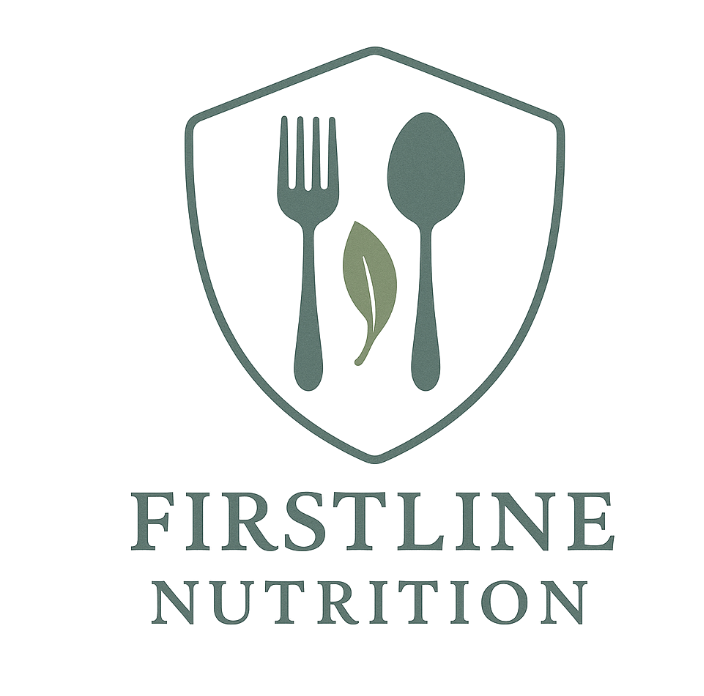Nutrition has a major impact on how we feel—our energy, focus, mood, and long-term health. But with all the noise out there, it’s easy to fall for things that sound legit but aren’t backed by real science. As a dietitian, I hear these myths all the time—and some of them can do more harm than good. Let’s clear the air. Here are five common nutrition myths I’d love to see retired this year.
Myth 1: Carbs Are the Enemy
This one just won’t die. So many people believe cutting carbs is the secret to better health or quick weight loss. But the truth? Carbs aren’t the problem.
Carbohydrates are your body’s main energy source—especially for your brain and muscles. The key isn’t to eliminate carbs, it’s to be smart about which ones you choose. Think whole grains like oats, quinoa, brown rice… or carbs from fruits, veggies, and legumes. These foods are packed with fiber, B vitamins, and nutrients that actually support stable blood sugar and long-term health. In fact, research shows that eating more whole grains can reduce your risk of heart disease by up to 25%. So instead of fearing carbs, focus on choosing quality sources that fuel you well.
Myth 2: Detox Diets Cleanse Your Body
Detox diets are everywhere—promising to "flush out toxins" and reset your body. But here’s the thing: your body already has a built-in detox system. It’s called your liver. And your kidneys. And your digestive tract.
These organs work around the clock to filter, process, and eliminate waste—no juice cleanse required.
Most of these trendy detox plans are super low in calories and cut out entire food groups, which can actually stress your body more and lead to fatigue, cravings, or nutrient gaps.
If you’re feeling sluggish or just want a reset, skip the gimmicks and focus on real food—think colorful veggies, lean proteins, whole grains, and plenty of water.
That’s what actually supports your body’s natural detox pathways—and it’s something you can actually stick to.
Myth 3: Eating Fat Makes You Fat
This myth has been hanging around since the low-fat craze of the ‘80s, and honestly—it needs to go. Cutting out all fat isn’t just unnecessary, it can actually backfire.
Fat plays a huge role in your body: it supports hormone production, helps you absorb fat-soluble vitamins (like A, D, E, and K), and keeps you full and satisfied after meals.
The key isn’t to avoid fat—it’s to choose the right kinds. Think avocado, nuts, seeds, olive oil, and fatty fish. These fats are anti-inflammatory, heart-healthy, and can actually support weight management when included in a balanced diet.
In fact, regularly eating a handful of nuts has been shown to lower heart disease risk by up to 30%. So no, fat doesn’t make you fat—overdoing ultra-processed, low-nutrient foods and not honoring your body’s cues? That’s another story.
Myth 4: Exercise Is the Biggest Factor in Your Metabolism
A lot of people think they need to work out more to boost their metabolism—but formal exercise (what we call EAT: Exercise Activity Thermogenesis) actually makes up the smallest slice of your total daily energy burn.
Your TDEE (Total Daily Energy Expenditure) breaks down like this:
BMR (60–70%) – Calories your body burns just to keep you alive
NEAT (15–20%) – Movement throughout the day (walking, cleaning, fidgeting)
EAT (5–10%) – Formal workouts
TEF (10%) – Calories burned digesting food
So while exercise has tons of benefits, it’s not the magic fix for weight or metabolism. Daily movement, nutrition, sleep, and stress management often matter more than your workouts.
Myth 5: All Supplements Are Necessary for Health
Supplements are everywhere these days—and it’s easy to think you need a whole cabinet full of pills and powders to stay on track. But for most people? That’s just not necessary.
Yes, supplements can be helpful if there’s a true deficiency or specific need (hello, vitamin D during Midwest winters).
But they’re not a substitute for a balanced, nutrient-dense diet. Whole foods offer way more than just vitamins—they come packed with fiber, antioxidants, and thousands of compounds that work together to support your health in a way no capsule ever could.
Before you jump on the latest supplement trend, take a step back and look at what you’re actually eating. Most gaps can be filled with food first. And if you do need something more? That’s where smart, targeted supplementation comes in—with help from a dietitian (like me!) who can guide you through it.
Embracing a Clearer Understanding of Nutrition
It’s time to put these persistent nutrition myths to rest. The more we can cut through the noise, the easier it becomes to make informed, balanced choices—without the stress and confusion that often comes with dieting.
The truth is, nutrition isn’t one-size-fits-all. Everyone’s body is different, and personalized, realistic approaches always win over trendy extremes. By calling out these common myths, my goal is to create more clarity and confidence around food—so you can focus on what actually works for you.
Let’s keep moving toward a healthier future—one built on facts, not fear.




Comments